News
Q&A with Paul Cavanagh and Walter Mayer: Get to Know VIP
October 16, 2017
Pictured: Michelle Ranaldo, director of technology, and junior Kevin Rigby.
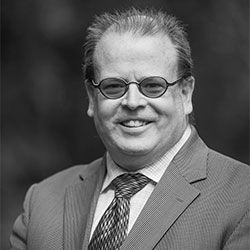
Paul Cavanagh
A small program with big outcomes lives on the Old Westbury campus. For 30 years, the NYIT Vocational Independence Program (VIP) has been helping young adults with learning differences and Autism spectrum diagnoses live fulfilling lives on their own. Paul Cavanagh, senior director, and Walter Mayer, associate director, Admissions and Development, recently sat down with The Box to talk about the program.
The Box: What is the NYIT Vocational Independence Program?
Paul Cavanagh: It is a three-year, mostly non-credit, college program for college-aged students with mild intellectual disabilities. A majority of our students have a diagnosis of high-functioning autism or similar educational and social needs.
Walter Mayer: VIP is a department of NYIT and VIP students are NYIT students…Our students live in an NYIT residence hall, have the opportunity to take NYIT credit classes, and engage in NYIT campus life.
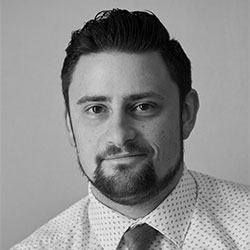
Walter Mayer
The Box: What makes this program unique?
PC: There are fewer than a dozen schools that provide all of the opportunities that VIP does—non-credit and for-credit classes, work experience, and residential living (a majority of other programs do not provide housing as an option). Very few programs provide all of the experiences as well as the individualized social, academic, employment, and financial coaching.
WM: What comes to mind for me are three distinguishing factors: our environment, our history, and our staff. VIP was founded in 1987. The program has been growing and evolving for 30 years, and there is a strong foundation of experience and institutional knowledge that guides our approach. We were one of the first five programs in the country to apply for recognition from the U.S. Department of Education as a Comprehensive Transition and Postsecondary Program, and we have had several institutions approach us to ask for guidance and advice in developing a program of their own.
The Box: Who applies to VIP?
PC: Most of our students are from the northeast corridor, but we have had students from Florida, California, and Texas, as well as a couple of international students from Canada and Qatar.
The Box: What kinds of classes are offered? PC: Students in the program take non-credit classes in executive functioning, social and communication, independent living, and employment skills. A small number of students take NYIT credit classes on a non-matriculated basis. In addition, every student has a job coach, academic advisor, social counselor, independent living coach, and a banking coach. Students who complete the program receive a certificate indicating the number of instructional and work internship hours successfully completed.
The Box: Where do students take classes?
PC: The majority of the VIP classes are taught at NYIT-Old Westbury. A few of the non-credit classes are taught in Marshall Hall at SUNY Old Westbury.
The Box: What kinds of employment opportunities are available to the students?
PC: We had an 80 percent post-graduation employment rate for our May 2017 class. More than a third of the graduating class was hired directly out of our VIP sponsored internships with major corporations in New York, New Jersey, and Washington D.C. VIP offers continuous counseling to our graduates. Nearly 1,000 students have graduated from the program.
Recently we have placed students in internships in several major hotel chains, retail stores such as Modell’s and Marshalls, local restaurants and corporate kitchens, animal hospitals, and other local businesses.
The Box: How can students apply?
WM: VIP has its own application and admissions process, which involves an admissions committee consisting of VIP staff members. All applicants must submit a complete application and some supporting documentation (usually supplied by the student’s high school). Then, each applicant completes an interview with a member of the admissions committee before we render a final admissions decision. [More information can be found at nyit.edu/vip/admissions.]
The Box: Can anyone get into the program?
WM: The short answer is no. VIP is a program for young adults with a documented diagnosis of a learning or intellectual disability and/or a diagnosis on the Autism spectrum. Typically, students come to us upon completing high school or shortly thereafter at the age of about 18-24.
The Box: What kinds of activities do you provide for the students?
WM: Apart from the variety of activities offered by NYIT organizations to all students, VIP runs its own activities and trips every day of the week. On weekday evenings, our Residence Life staff creates and runs activities in the residence hall (yoga, dance parties, game nights, karaoke, crafts, workout sessions, etc.). On the weekends, our students typically can choose from four organized off-campus trips to places like the movies, a bowling alley, sporting events, malls, and museums.
In addition, a key part of our curriculum is travel training. During their freshman and sophomore years, students take a course focused on leveraging public transportation in order to get where they need to for fun, work, or other practical purposes. In conjunction with this course, students take trips using trains, buses, subways, and ferries to destinations in and around New York City.
The Box: Is there anything you would like to add?
PC: One of our annual alumni and student events is our Benjamin J. Cecil Walk for Independence, which will take place here at NYIT-Old Westbury on Saturday, November 4. This event raises money for our student scholarship fund. Staff members and students are welcome to sign up and help us raise some money.
If you would like to donate goods or services in support of the walk, contact Walter Mayer at wmayer@nyit.edu. Register for the event here.
The NYIT Vocational Independence Program was recently highlighted in an article in the New York Times. Read the full story.
This interview has been edited and condensed.
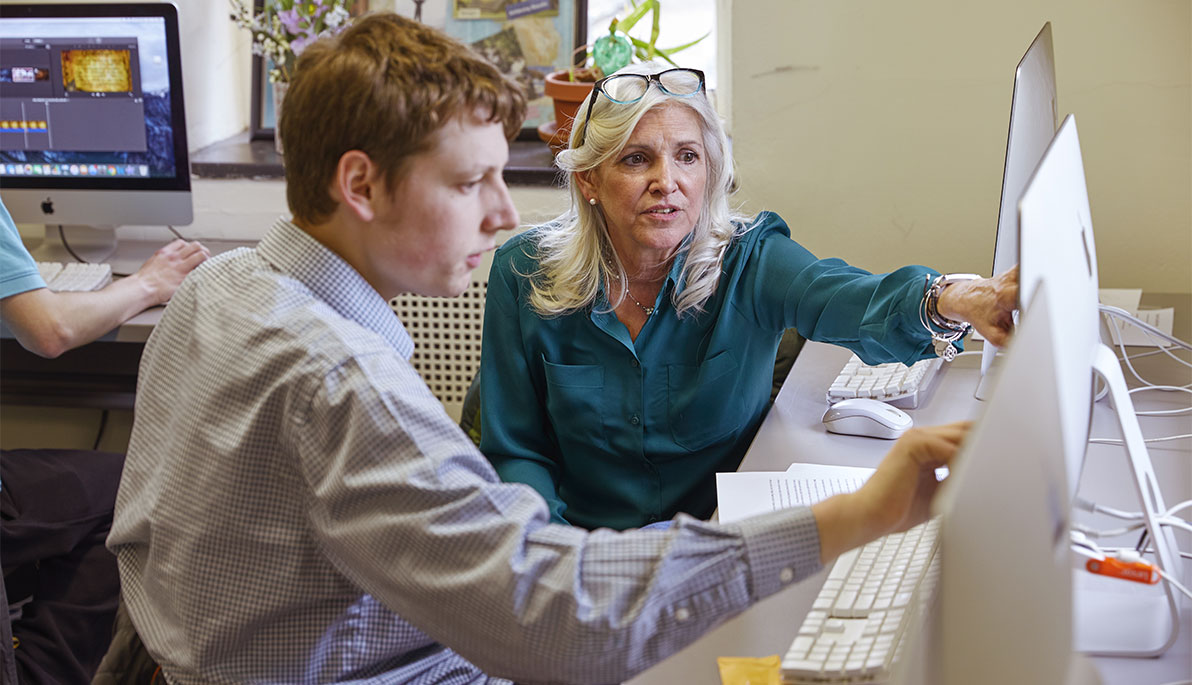
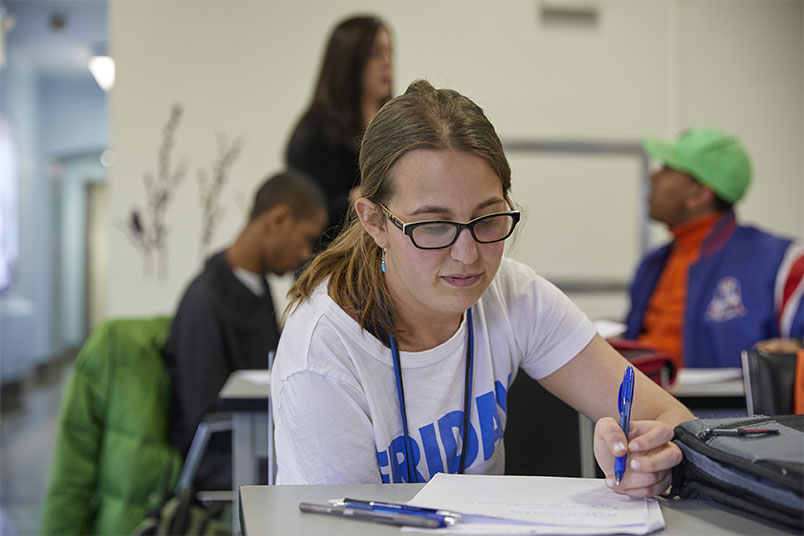
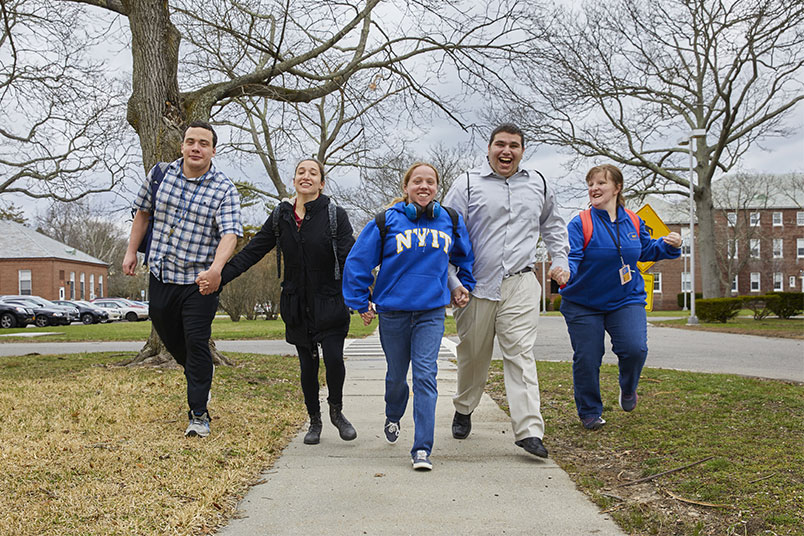
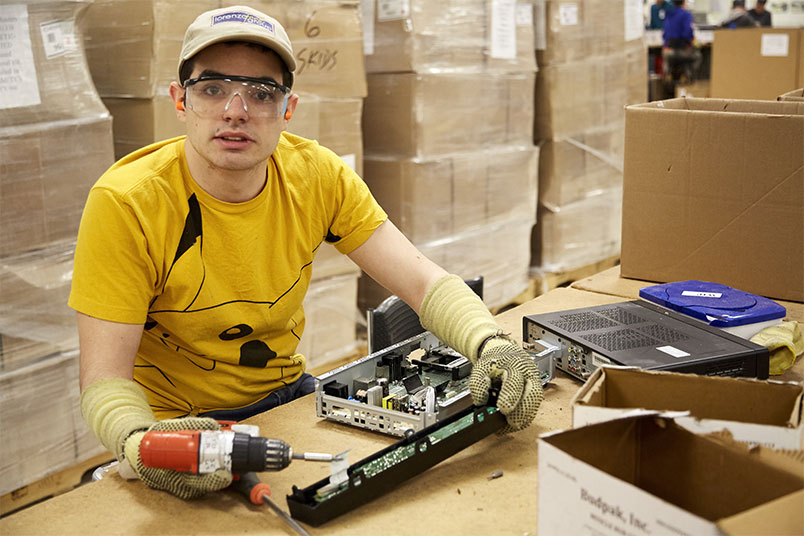
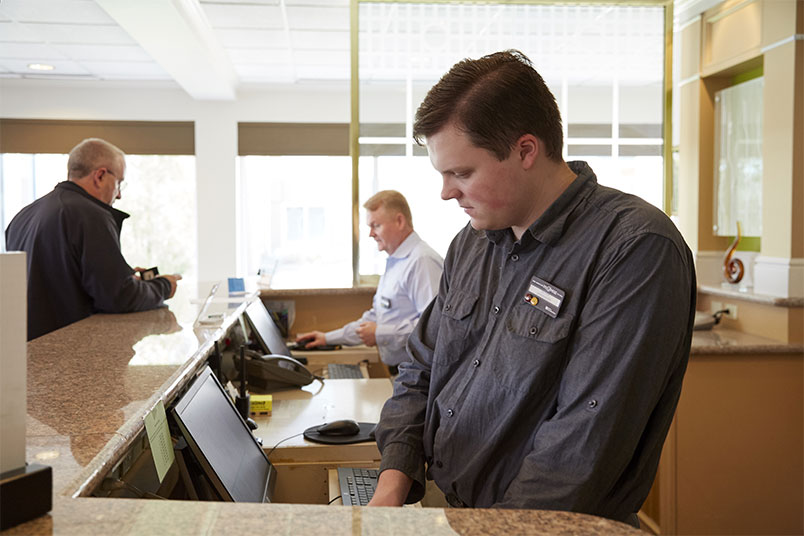

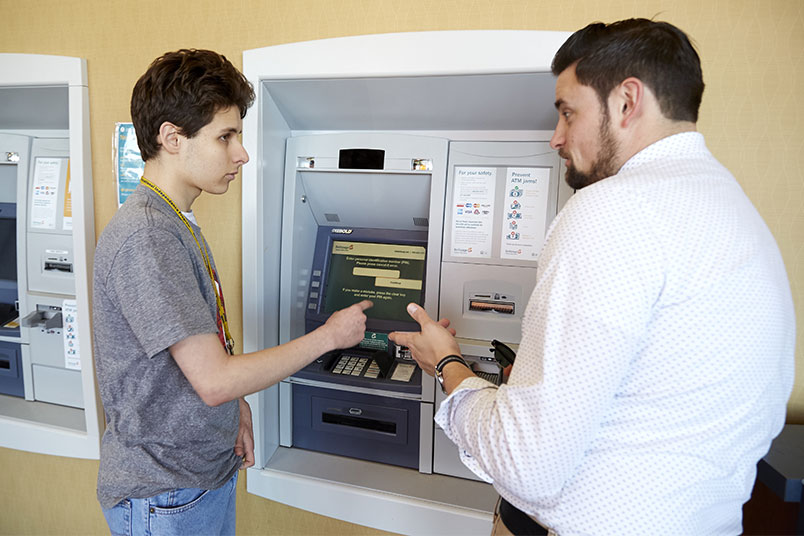
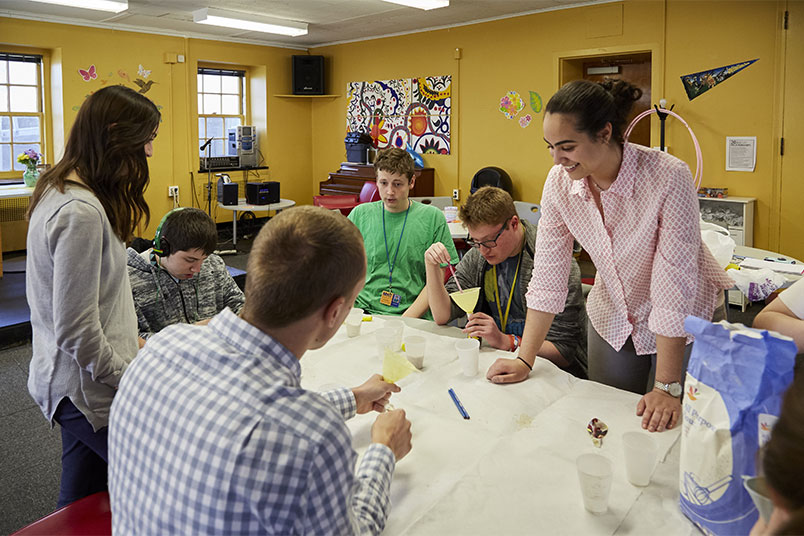
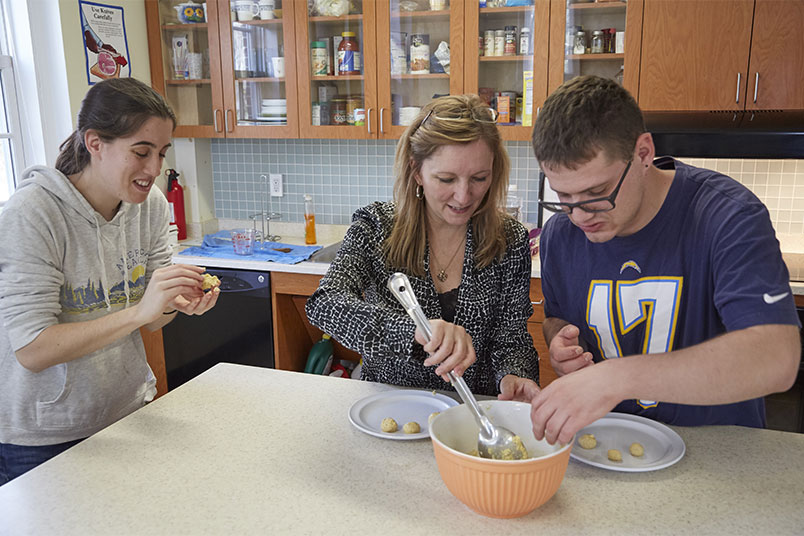








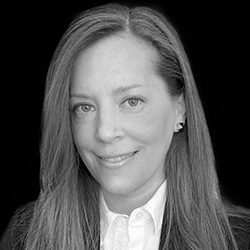
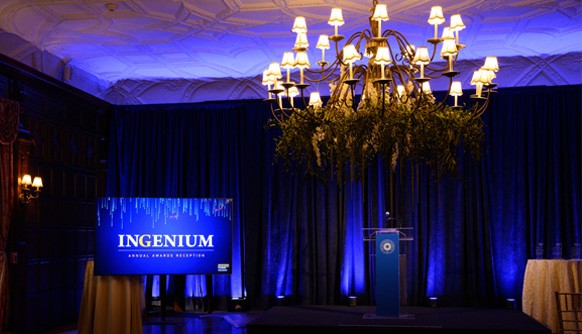
_Thumb.jpg)

